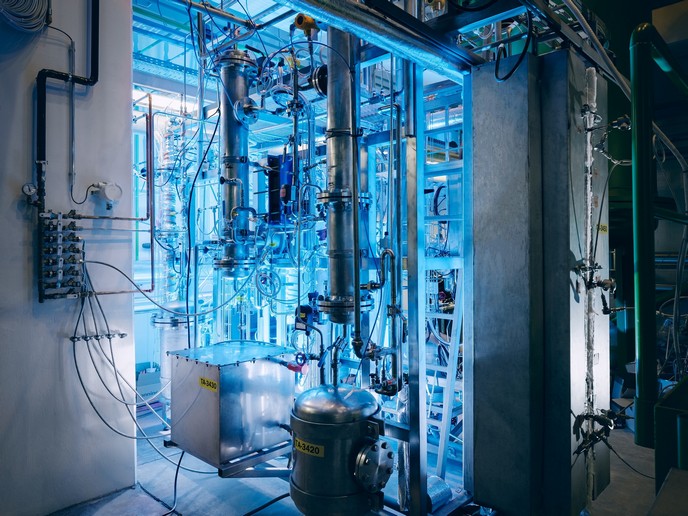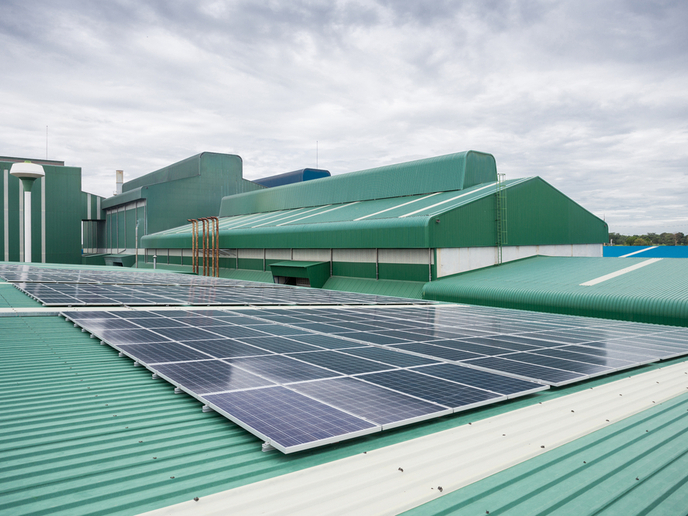Cost-effective biofuels production could slash transport's global warming potential
Transport is a major contributor to greenhouse gas (GHG) emissions. Advanced biofuels derived directly from living matter including agricultural and forestry residues and wastes have a key role to play in Europe’s low-carbon energy landscape. Their combustion can decrease GHG emissions more than 80 %, they can be sustainably produced from waste, and they can improve our energy security. The EU-funded COMSYN(opens in new window) project, coordinated by the VTT Technical Research Centre of Finland, set out to increase the adoption of biomass-to-biofuel technologies.
Flexible feedstock and small-scale primary conversion
A key component of the COMSYN concept is local, small-scale conversion of biomass feedstock to biocrude oil. Compatible feedstocks include demolition wood, forest residues, forest industry by-products and straw. “The smaller scale lowers the investment costs significantly, which lowers the investment risk and makes the concept more attractive. The biomass flexibility minimises seasonal impacts associated with food crops and enables the primary conversion units to be located throughout Europe, enhancing energy security,” says Johanna Kihlman, senior scientist and COMSYN project coordinator.
Simplified syngas ‘cleaning’ and intensified biocrude production
The synthesis gas produced by biomass gasification must be cleaned rigorously to remove impurities before it is fed into the Fischer-Tropsch synthesis reactor. There, recombination reactions yield hydrocarbons for centralised refining to transport engine-compatible fuel. COMSYN simplified the cleaning process, significantly reducing associated costs(opens in new window). The scientists increased the output of Fischer-Tropsch synthesis with process intensification, which also lowers the cost of the final product. The production rate of a large-scale reactor was predicted to increase from 0.25 barrels per day (bpd) to 20 bpd, a nearly 100-fold increase. Multiple intensified modular reactors can be used together to further increase production. COMSYN’s primary conversion process was piloted at VTT. The results of the pilot campaigns were used to create northern and central European case studies. Techno-economics of potential sites were analysed considering the options for: integration with local industry including a pulp mill and a sawmill; different feedstocks such as wood, forestry residues and by-products and straw; and energy integration in the form of electricity, district heating and on-site consumption of electricity and steam.
From biocrude to functional fuel: considerable global warming reduction
“Within the first two years, our gas ultra-cleaning unit went from lab to pilot scale; we constructed the new unit in the gasification pilot facilities and integrated the gasification and gas cleaning process with the Fischer-Tropsch synthesis unit,” says Kihlman. This remarkable technical success was the prerequisite to upgrading the biocrude product to blended diesel(opens in new window) and gasoline(opens in new window) fuels at refineries, verification of the biofuels’ functionality, and a techno-economic analysis(opens in new window). “For the average consumer, the dilemma is often how to cut personal carbon footprint without extra costs and/or changing personal lifestyle. The blended biodiesel and biogasoline produced by COMSYN technology are suitable for normal vehicle engines without excessive costs. Technologies like COMSYN’s make the transition towards a carbon-neutral Europe easier,” concludes Kihlman. Techno-economic and life cycle assessment outcomes demonstrate an impressive global warming potential decrease (based on GHG emissions) of greater than 80 %.







